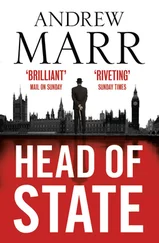Andrew Marr
Children of the Master
FOURTH ESTATE· London
Fourth Estate
An imprint of HarperCollins Publishers
1 London Bridge Street
London SE1 9GF
www.4thestate.co.uk
Copyright © Andrew Marr 2015
Cover images © Shutterstock.com
The right of Andrew Marr to be identified as the author
of this work has been asserted by him in accordance
with the Copyright, Design and Patents Act 1988.
Extract from ‘Canto XIII’, from THE CANTOS OF EZRA POUND, copyright ©1934 by Ezra Pound. Reprinted by permission of New Directions Publishing Corp.
A catalogue record for this book is available from the British Library.
All rights reserved under International and Pan-American Copyright Conventions. By payment of the required fees, you have been granted the non-exclusive, non-transferable right to access and read the text of this e-book on-screen. No part of this text may be reproduced, transmitted, down-loaded, decompiled, reverse engineered, or stored in or introduced into any information storage and retrieval system, in any form or by any means, whether electronic or mechanical, now known or hereinafter invented, without the express written permission of HarperCollins e-books
Source ISBN: 9780007596454
Ebook Edition © 2015 ISBN: 9780007596461
Version: 2016-04-26
For Isabel Claire
Kung walked
by the dynastic temple
and into the cedar grove,
and then out by the lower river,
And with him Khieu, Tchi,
And Tian the low speaking
And, ‘we are unknown,’ said Kung,
‘You will take up charioteering?
‘Then you will become known,
‘Or perhaps I should take up charioteering, or archery?
‘Or the practice of public speaking?’
And Tseu-lou said, ‘I would put the defences in order,’
And Khieu said, ‘if I were lord of a province
I would put it in better order than this is.’
And Kung said, and wrote on the bo leaves:
If a man have not order within him
He can not spread order about him;
And if a man have not order within him
His family will not act with due order;
And if the prince have not order within him
he cannot put order in his dominions.
And he said
‘Anyone can run to excesses,
It is easy to shoot past the mark,
‘It is hard to stand firm in the middle.’
And they said: If a man commit murder
Should his father protect him, and hide him?
And Kung said:
He should hide him.
From Ezra Pound, ‘Canto XIII’
Table of Contents
Cover
Title Page
Copyright
Dedication
Epigraph
Prologue: Photographs
Absolutely No Partners
After the Funeral
The Early Life of David Petrie
A Perfect Girl
A Terrible Story
On an Island
David the Ruthless
Funny Farm
Caro Gets Selected
Politics Today
Peter Quint
Interlude: How to be a Political Columnist
In the Rose Garden
David Petrie, MP
A Lesson at a Dinner
Pebbleton
A Warning from Bunty
Public Servants
A Table for Three
The Sports and Social
In the Master’s House
Family Life
Barker
Health and Efficiency
Cleanliness
How to Cure a Columnist
Bathtime Talk
Immorality
Whitehall Life
The Education of David Petrie
A Moving Speech
The Joy of Routine
In the Country
A Sermon in Barker
What Happened to the Idea?
How to Bring Down a Prime Minister
The Choice
A Flying Pot
Building a Better World
To Glaikit – and Back
Back in Barker
In the Hotel
The Happy Accident
A Frank Talk
In the Gallery
A Clever Plan
Showtime
A Stranger in Barker
The Triumph of the Fourth Estate
A Minor Failure of Empathy
Making Good
Final Reckonings
Postscript
Also by Andrew Marr
About the Publisher
A good politician seizes the moment; and if the moment resists, she knocks the bugger against a hard surface until it gives up.
The Master
There are special days. Not so many. Far more often come the amiable days when we dress, shower, eat and work, when we laugh at one another and we pass on secrets, and we eat moist chicken and drink cold beer … and none of it really touches our inner selves. Most days we slip through, the snow creaking, barely touching the sides. As in a symphony, not every moment – not every day – can be intense. And there are also the days whose smells, music and colours burn themselves into us so that we are changed for good. On such days, speckles of dirt on a kettle lid can be beautiful, and a song whistled in the street can sit inside our skulls forevermore.
Caro Phillips, who was a good person, believed that today would be a special day. She pulled open the curtains and a cold, pre-dawn light filled her bedroom.
She had acted ruthlessly. Because she had acted, everything had changed. She saw the orange and green rug under her bare feet properly, for the first time. She’d bought it years before. Beautiful, just beautiful. She saw her dressing gown flopping from its hook on the door, a dollop of shadow beside it, and felt love for its soft familiarity. She saw her own shadow, quivering, and reached out to touch it. She didn’t glance in the direction of the bedroom mirror, saving that until she reached the bathroom.
The face, as she’d hoped, was both familiar and, this morning, strange. It was a good face. Laughter lines; there had been a lot of laughter. A slight caramel tan, the residue of life-changing days in Rome. She smiled at herself: teeth tamed in adolescence by train tracks, a slightly overlong top lip, summer-sky-blue eyes. Ever since she could remember, she’d been able to knock people backwards, almost literally, with her smile – men and, yes, absolutely, women too.
And because she was a good person, all her life strangers had brought her good things. She looked harder into the mirror. No, not a sign of dangerous redness or a broken vein. Self-control, an early renunciation of delicious tobacco, and caution with alcohol. And then she looked at herself properly: the eyes were looking at the eyes, complete self-consciousness. This was the face of the king’s first minister of the treasury, the most powerful face in the United Kingdom, the face of Nefertiti or Gloriana.
Now Caroline noticed its coldness. This was the face of a woman who had done something terrible – not murder, but something like murder. She felt she could smell her own electricity. She thought of poor Angela, poor sweet Angela, who smelled not of that, but of the coast, and of honeysuckle, and who was at this very moment in a cramped prison cell, perhaps bereft, feeling that her life was over. Caro washed, peed, showered, towelled and began to dress.
She could imagine the prison cell vividly. The walls would be painted to a height of about four feet in a medicinal green; and above that in white. They would be covered with little raised bumps, which would break and flake if you pressed them. There would be small messages, not many, scratched into the paint or written in pencil, not all misspelled.
Back in Caro’s bedroom there was a large black-and-white photograph of Angela in a silver frame, given to her on a previous anniversary. Under the Master’s direction, she had allowed a journalist from The Times to take that picture away with him after an interview; the paper had used it on the front page. It had done Caro a lot of good. Angela was staring with her dark, intense look, her wiry black hair blowing across her face like seaweed, her collar shining like a bone. The picture had been taken down at Pebbleton in Devon in the good days. Caro remembered taking it, and she noted that it was well composed: the stubby tower of the church, beside which they lived, was clearly visible over Angela’s black-shirted left shoulder.
Читать дальше












